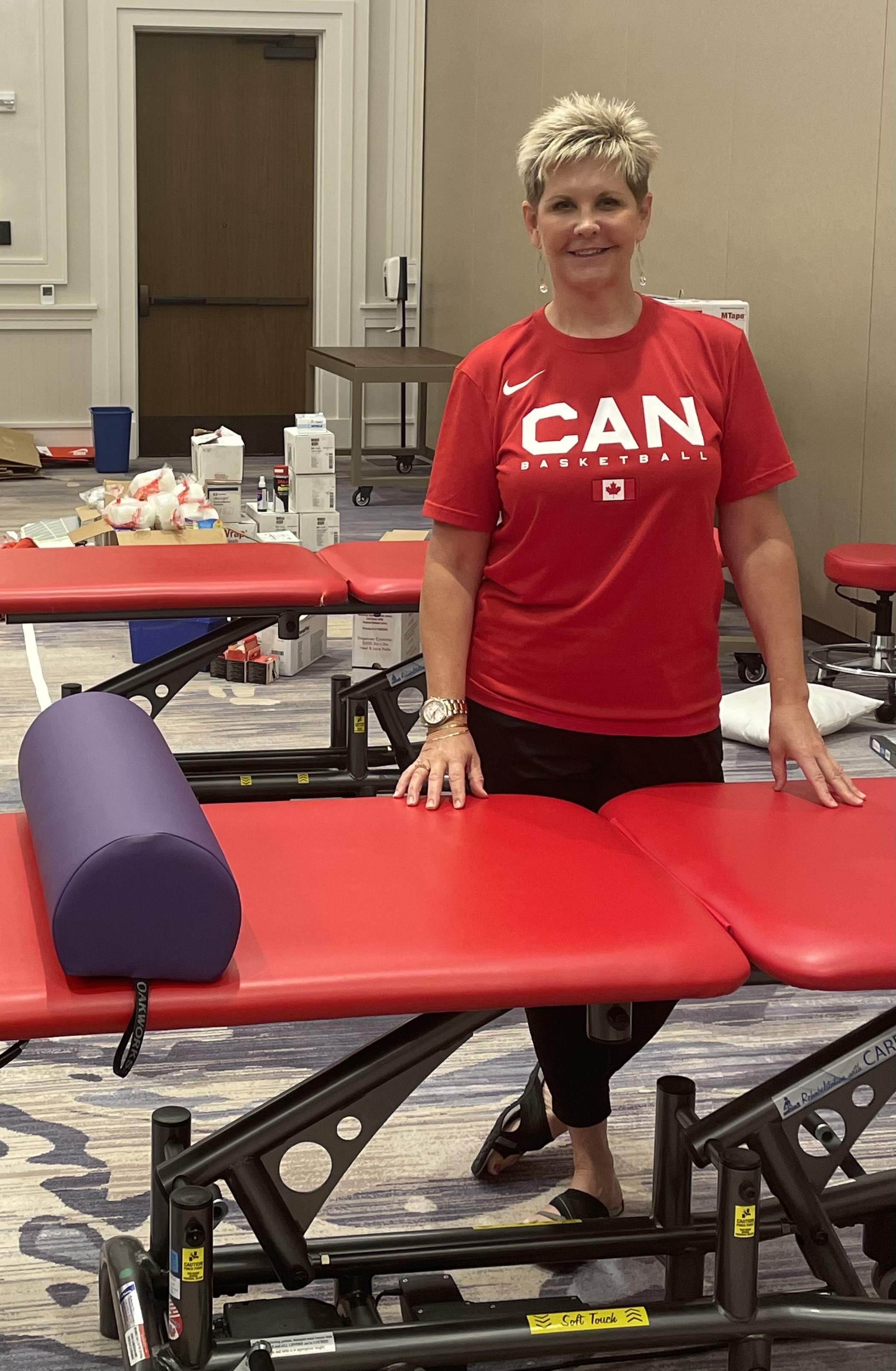It takes a village (Part 2): How Sather Clinic staff support Canadian athletes preparing for the Olympics
Danica Erickson - 21 July 2021

This July, Marni Wesner, associate clinical professor in the Department of Family Medicine and sport and exercise medicine physician with the Glen Sather Sports Medicine Clinic (GSSMC), will travel to Japan to support Canada Basketball’s women’s team as they compete on the world stage in the Tokyo 2020 Olympic Games. This will be the third time supporting athletes at an Olympic Games for Wesner, one of three medical staff from the GSSMC who will be going, but she already knows it will be an Olympic experience like none other.
Wesner attended medical school and family medicine residency at the University of Saskatchewan. She intended to practise orthopedics, but everything changed after she heard a sport and exercise medicine (SEM) physician speak at a conference in Regina, SK. Intrigued by his work, she arranged to shadow him in his clinic for a week and she loved what he was doing. “Sport medicine is very much non-surgical orthopedics, but it’s more than that,” she says. “It’s so much more than just MSK (musculoskeletal). I realized this is what I like; I wanted to do this. So I got out of orthopedics, but it kept me very much in MSK medicine, and as much as it was the hardest decision I ever had to make, it was the best decision I ever made.”
Having found herself on the right track, Wesner came to the University of Alberta in 1998 to do her SEM fellowship, remaining at the GSSMC after completing her fellowship and eventually completing a master’s degree in sport psychology at the U of A as well. “I’m told by my colleagues in sport psychology that I’m a bit of an enigma: there aren’t many MD-sport psychologists in sport psychology and sport medicine. Maybe there are now, but there weren’t in 2005 when I finished my master’s in sport psychology.”
The Olympics is undoubtedly the highest-profile multinational, multisport competition in the world, but Wesner starts working with the athletes long before they qualify for an Olympic Games. She works with the national team athletes, including junior athletes in the development stages, over the course of four years as they progress through various competitions that will hopefully culminate in competing at the Olympic level. After 16 years—two Olympic cycles— with Hockey Canada and Skate Canada, this time Wesner decided to make a change to basketball..
Working with the basketball team isn’t the only thing that’s changed. Due to the COVID-19 pandemic, the national team, which has trained in Edmonton for the last nine years, couldn’t continue to train in Canada. After several false starts planning for possible set-ups in France, Hawaii and Phoenix, they relocated to the Toronto Raptors training facility in Florida because of the border and travel restrictions in Canada.
The Olympics may seem glamorous, but preparing a team is an intense job. Wesner is available for the players 24/7 and meets with the integrated support team (IST) every evening. Total care of the athlete is required, whether it’s mental or physical, and whether the player is injured or healthy. The teams Wesner works with each have only one physician, one physiotherapist and one massage or athletic therapist, so everyone pitches in to provide care. This year, there is an added responsibility for Wesner, with daily COVID-19 testing and analysis for the team. Although the pandemic has put a damper on things, she has no concerns for the safety of the players. The entire team, support staff included, will be fully vaccinated by the time they leave for Japan, and Wesner is aware of the exceptional efforts the organizing committee has undertaken to keep everyone at the Olympic Games healthy and safe.
Olympic Games are associated with physical endurance and strength, but Wesner’s sport psychology training has been particularly useful in mentally preparing the athletes for these games. The last time the team played together was at the Olympic qualifiers a year and a half ago. It has been stressful for the players to prepare for the biggest games of their lives within a very short timeframe, but Wesner found most of the mental health struggles they have are from trying to find adequate treatment for injuries in the face of shutdowns and COVID restrictions. “In sport medicine, most of us are pretty good at addressing what happens physically with the rehab and being able to guide people through the process of rehab. I don’t think we are always good at considering the psychological or mental aspects of rehab, so being able to wear both hats offsets the athletes’ return to sport in a more effective, functional manner.”
Wesner is headed to Japan knowing that there will be no fans in the stands and that the Games will end this year without the tradition of post-Games tours of the host country, because everyone has to be on a plane home within 24 hours of their final event. Despite this, Wesner still finds the opportunity to work with Olympians and Canada Basketball incredibly rewarding.
“It’s a great privilege to be able to provide for the Olympians' health and wellness, and to be a part of their success and achievement of their Olympic goals and medal accomplishments.”